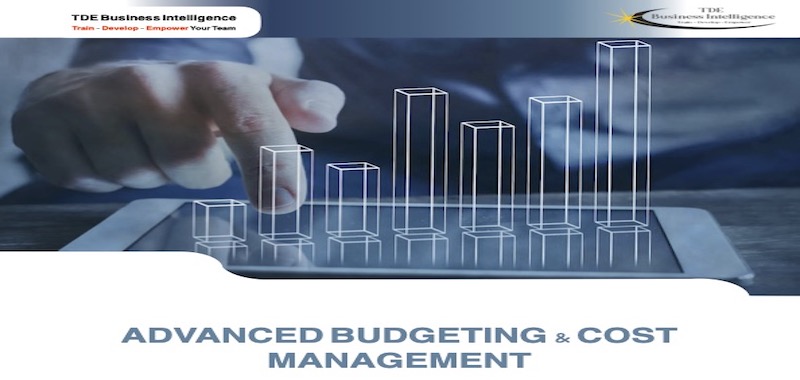
SCHEDULE
| Dates | Venue | Category |
| 15-19 May 2023 | Bangkok – Thailand | Finance – Accounting |
| 14-18 August 2023 | Kuala Lumpur – Malaysia | Finance – Accounting |
| 21-25 August 2023 | Port Moresby – Papua New Guinea | Finance – Accounting |
| 15-19 October 2023 | Dubai – United Arab Emirates | Finance – Accounting |
INTRODUCTION
This Advanced Budgeting & Cost Management provides participants with key cost awareness and budgetary skills, which are essential for managing and controlling resources in times of increasing global competition where the budgets are inextricably linked with both the achievement of strategic objectives as well as with evaluation of future plans and initiatives.
Budgeting and cost analysis are crucial elements for the management of contemporary organizations. Nowadays, if companies want to stay competitive, they are urged to link their strategies with accurate systems of resource allocation and performance measurement. Along this line, budgeting, as well as tracking, controlling & reducing cost represent essential activities to be performed and monitored by organizations as they implement their key processes, activities and operations. In addressing these issues, this training course is relevant for those professionals & analysts facing the difficult challenge of improving performance while reducing costs of those processes for which there are accountable.
BENEFITS OF ATTENDING
- Refine costing and budgeting terminology used in business
- Understand the importance of a well-defined costing and budgeting process
- Determine full costs of outputs for the goods and services provided
- Master traditional techniques and recent best practices on budgeting / cost management
- Link finance and operation for budgeting purposes and strategy execution
WHO SHOULD ATTEND?
- Financial Accounting Team Members
- Cost and Management Accounting Staff
- Finance Managers
- Planning Managers
- Commercial Managers
- Capital Investment and Project Team Members
COURSE OUTLINE
Session 1: Introduction: The Relevance of Budgeting and Cost Management within Strategy Execution
- The Link between Strategy, Planning, Budgeting and Cost Management
- Why Budgeting and Costing are so important to manage your company?
- Towards a Cross-functional Process-view of the Organization
- Financial vs. Managerial Accounting (Where you get information for decision-making)
- Understand your Processes: Integrating Financial and Non-financial Aspects
- Identify and Discuss the Key issues in terms of Budget / Costing for your own Organization
Session 2: The Budgeting Framework and its Role within the Management Process
- The Role of Budgeting within Management Accounting
- The Value of Budgeting in your Company
- Behavioral Implications of Budgeting
- Key Concepts and Terminology
- Advantages and Disadvantages: Critical issues to be Discussed
- Overview on the Financial Statements – Balance sheet, Income statement and Cash-Flow
Session 3: Cost Management for Budgeting Purposes
- Cost Concepts and Terminology
- Different Costs for Different Purposes
- Fixed vs. Variable Costs: The Cost-Volume-Profit Analysis Model
- Contribution Margin Analysis
- Manufacturing vs. Non-manufacturing Costs
- Period vs. Product Costs: Inventory Evaluation and Control
Session 4: Traditional vs. Advanced Techniques in Cost-control
- Under-costing and Over-costing: The Consequences for Profitability
- How to refine a Costing System?
- Indirect vs. Direct costs: Traditional Cost Allocations Systems vs. Activity-Based Costing
- Cost Drivers: Linking Resources, Activities and Management
- Introducing Activity-Based Budgeting (ABB) and Management (ABM)
Session 5: Broadening the Performance Measurement Systems
- Shortcomings of Traditional Approaches to Budgeting and Performance Measurement
- Need to Linking Financial to Operational Issues
- Recent Best Practices: the Balanced Scorecard and Six-sigma
- Financial Perspective and Customer Perspective
- Internal Business Process Perspective and Learning & Growth Perspective
- Developing and Adapting the Scorecard
